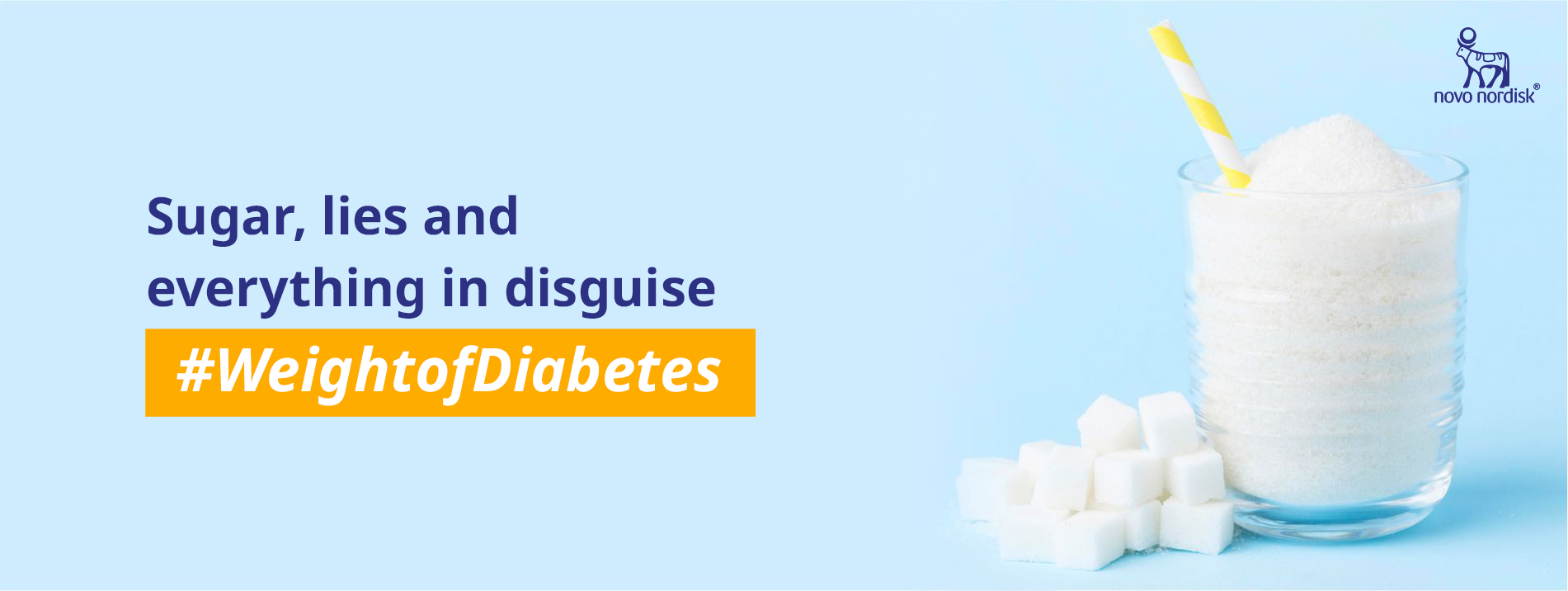
What is type 2 diabetes?
Type 2 diabetes is a common chronic disease - find out its symptoms, causes and how it can be diagnosed.

It's a little-known fact that food companies employ a plethora of pseudonyms for added sugar, making it challenging for consumers, especially those managing conditions like diabetes and obesity, to make informed choices. Recognising these is an essential step in effective diabetes management.
It's almost like a game of that food companies play with consumers, especially those who are living with chronic conditions such as diabetes and obesity. A variety of names for sugar are sprinkled throughout ingredient lists, leaving you to guess what's genuinely healthy and what's not. Understanding these aliases is not just a matter of curiosity but a necessity for those aiming to control blood sugar levels and manage weight. Let's delve deeper into these deceptive terms to unveil what they really mean and why they can be the cause for high blood sugar.
Syrups:
First on the list are items that include the word "syrup," such as corn syrup, high-fructose corn syrup, or rice syrup. While these names may invoke images of natural, farm-fresh ingredients, the reality is frankly different. These syrups are highly refined and processed forms of sugar that can quickly spike your blood sugar levels, exacerbating both diabetes and obesity.
'-Ose' Suffix:
Another group to watch for is the scientific-sounding words that end in "-ose." These include fructose (fruit sugar), sucrose (table sugar), maltose (malt sugar), and dextrose (a form of glucose). The '-ose' suffix might make them sound sophisticated but do not be fooled. These are merely different forms of sugars that have a similar negative impact on your metabolic health, including increasing your risk for obesity and cardiovascular disease.
'Natural' Sugars:
If the term "natural" is part of the sugar name, tread carefully. Names like cane sugar, date sugar, coconut sugar, and even beet sugar may sound healthy, but the reality is that they offer minimal nutritional benefits over refined sugar. Their glycaemic index, which measures how quickly a food increases your blood sugar, is often just as high as their refined counterparts. These 'natural' sugars contribute to weight gain, worsen diabetes symptoms, and pose risks for developing high blood pressure and high cholesterol.
Alternative Sweeteners:
Lastly, there are alternative sweeteners like honey, agave, jaggery, and molasses. While they are often touted as healthier alternatives to refined sugar, they are essentially concentrated sources of sugar and calories. Agave, for instance, contains even more fructose than high-fructose corn syrup. These alternative sweeteners can be just as harmful in causing weight gain and exacerbating diabetes and cardiovascular disease.
In summary, when managing diabetes and obesity, it's critical to go beyond the surface and recognise these multiple causes of high blood sugar. They might appear in different forms and names, but their impact on your health is consistently negative.
It cannot be overstated that for someone managing both diabetes and weight issues, overlooking sugar intake can lead to severe, life-threatening complications1. While it's challenging to track every gram of sugar consumed, a holistic approach including mindful eating, stress management, and regular physical activity can make a significant difference.
For those still struggling to manage blood sugar levels effectively, fret not. The medical world is abuzz with new possibilities in diabetes management that could revolutionise your approach to the condition. Consulting a healthcare provider can provide valuable insights tailored to individual needs, such as diet and exercise and an introduction to the newer innovations in diabetes.
People with diabetes may also be living with obesity or overweight. It is important for them to monitor their blood sugar levels vigilantly and have comprehensive treatment plans in place. Unmasking the hidden sugars in your diet is an empowering step in the management of diabetes and obesity-related conditions. Together, with medical consultation and lifestyle changes, we can unshackle ourselves from the weight of diabetes.
IN23CD00266